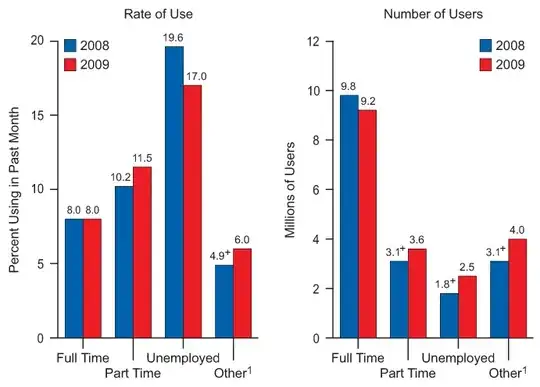While this doesn't prove that the hypothesis "70% of marijuana users also use while working" is false, it certainly makes it look unlikely.
http://www.icpsr.umich.edu/quicktables/quicksetoptions.do?reportKey=23782-0001_du%3A7
Using data from this site, I was able to come up with the following table. This represents employed (both full-time and part time) people who say they have ever used marijuana, and how frequently they have used over the last 12 months:
77.2% have not used at all in the last 12 months
6.5% have used 1-5 days in the last 12 months
1.5% have used 6-10 days in the last 12 months
2.7% have used 11-25 days in the last 12 months
3.6% have used 26-100 days in the last 12 months
8.4% have used 100+ days in the last 12 months
If we only consider the "recent" users (excluding the 77.2% who have not used in the last 12 months), we are left with:
28.5% have used 1-5 days in the last 12 months
6.7% have used 6-10 days in the last 12 months
12.0% have used 11-25 days in the last 12 months
16.0% have used 26-100 days in the last 12 months
36.8% have used 100+ days in the last 12 months
If this data is accurate, for 70% of current marijuana users to smoke at work, then even a good portion of even the most casual users would have to smoke at work, and that just seems unlikely. I suspect the most casual users are the least likely to smoke at work.
So I would argue that for any useful meaning of statistics, it is clear that 70% of pot users do not use while at work.
Of course, by massaging the numbers sufficiently, it may be possible to claim that 70% of people who have used at any time in their life, used at work at some time in their life--or more likely were high at work (used immediately before arriving to work, or over their lunch break, etc). But using such a statistic for anything other than curiosity, I would consider unethical, considering that 77% of "some time in their life" users no longer use at all, according to this data.
